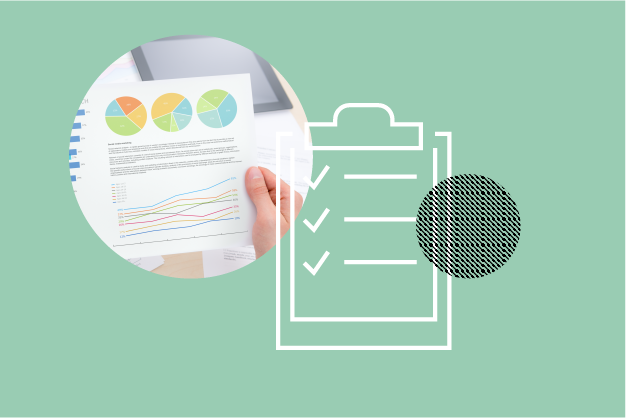Christine Benz: Hi, I'm Christine Benz for Morningstar.com. Having a long life is usually considered a good thing, but it does compound retirement planning challenges for women. Joining me to discuss this topic is Cindy Hounsell. She is president of the Women's Institute for a Secure Retirement.
Cindy, thank you so much for being here.
Cindy Hounsell: Thanks for inviting me.
Benz: Cindy, let's talk about longevity for women. I know on average women tend to live a couple of years longer than their male counterparts. Does that hold true across the income spectrum? Because I know that higher incomes tend to be associated with longer life expectancies.
Hounsell: Yeah, I think, there's been a couple of studies recently that shows that lower-income people are not living as long.
Benz: Would you say that that translates, though, across the income bands that women do tend to live longer than their male counterparts?
Hounsell: Definitely. I mean, it depends on your genes really.
Benz: Right. And this is a challenge for single women planning for retirement, but it's also a challenge for married couples where they've got to plan for the longest life expectancy. So, knowing that the female partner or the single female will live longer on average than her male counterpart, what are some things that women can think about to sort of troubleshoot the issue of outliving their assets?
Hounsell: Well, I think, women, first of all, need to pay attention, which many do not, and especially, if you're married, a lot of times women delegate. They are happy that, the delegation is to the other person to let them take care of those issues. But at some point in your life most women are going to be living alone and having to take care of their finances and planning for that, knowing how it works. So, I think, it's really important for women to take charge.
Benz: Or at least stay plugged in. If you're delegating to your spouse, make sure that you at least understand the basics of your financial plan.
Hounsell: And you know where everything is.
Benz: Right. You also say that it's really important to take a hard look at Social Security maximization, particularly as we have more and more people coming into retirement without the aid of pensions and instead just relying on their portfolios, which may not be large enough as well as Social Security, making sure that you are looking at your claiming strategy with an eye toward maximizing Social Security over your life expectancy--which could be long. Let's talk about that a little bit. Can you share any strategies?
Hounsell: Sure. First of all, like one out of six women depends on Social Security for most of her income. So, it's a really important source of income, and I think that's true for everyone at this point. Nobody is thinking, well, I don't need to really worry about Social Security. And so, it's knowing the rules, knowing what you have, getting statements, signing up now because they don't mail the statement out every year, and they choose different age bands to send out the statements. So, you need to go online; you need to set up an account; you need to check your earnings; know what you're getting; and then figure out how you're going to take it--whether you take it early and have it greatly reduced at age 62 …
Benz: Which is what most people still do.
Hounsell: Right. And people do that because somehow they think if I don't take it now, it's not going to be there for me, which is not the way the system works. It's not like whoever is in gets it and if you're not in you don't get it. I mean, there's a trust fund. There's a whole system set up there. But people hear a headline--we hear this from Social Security--they hear a headline on the radio and then they jump, like, I better go take my Social Security now.
Benz: Get my money and run.
Hounsell: Yes.
Benz: Another big idea that's out there, and you often hear this advanced for both men and women, the virtue of working longer. Let's talk about that. I think you can agree that it has a number of advantages from a financial standpoint. The reality though might not meet that ideal, that many people cannot work longer for one reason or another. Let's talk about that as a strategy to potentially offset longer life expectancies.
Hounsell: Right. I mean, I think it's really important. I tell women when they say, well, what can I do, I feel like I'm behind. Like, if you're walking and you have a job, stay as long as you can because there's no way that you'll get that extra increase of 8% a year for four years …
Benz: Which is what you get for delaying Social Security past full retirement age.
Hounsell: Right. If you wait till your full retirement age, which right now is 66, and then you work till you're 70, then you're going to really increase your benefit, which is what most people need to do. It's a great opportunity.
Benz: Right. And that also reduces portfolio withdrawals and might enable you to make additional contributions to your retirement plan. From a practical standpoint though, we know, and you mentioned this to me before we got started, there are things that can get in the way of your best-laid plan. So, you think it's also important to really think about what are some of the what-ifs here? What if I can't continue working, for example?
Hounsell: Right. And that's what happens a lot. Women end up doing care-giving for parents or for a spouse possibly or grandchildren. We have a lot of people that are now taking custody of grandchildren. So, you need to think about that, the what-ifs, having the emergency fund all along for what if I can't do this and behave in a way that something may happen. I keep saying to people, too: always expected the unexpected because you just don't know. If you have saved enough, you feel comfortable now. Who knows what can happen in a couple of years. So many people end up with chronic illnesses. Women especially have many more health issues in retirement and that just seems like--I feel like that's the benefit we get for living longer.
Benz: We've talked about a couple of different strategies. We talked about staying plugged into the process. Don't tune it out and completely delegate to your spouse. We talked about Social Security maximization. We also talked about working longer as something that women can potentially consider to ensure that they don't outlive their assets.
You say it's also important to think about long-term care. Let's talk about why that tends to be more important for women and why women shouldn't put off making some decision or at least thinking about long-term care as a part of their retirement plan.
Hounsell: Right. And I think you need to think about long-term care early as opposed to just before you retire. What we see happening all the time is that women end up doing care-giving. So, they don't get to work longer or they don't maybe get to take their Social Security later as they would like. So, they are taking care of parents or children or a spouse. So, it's the unexpected shocks, as they call it, in the system, about what happens to you in your pre-retirement years when you think everything is going along well, and you haven't prepared for that long-term issue to come along that you're going to have to fund.
Benz: And even for married couples the long-term care issue tends to hit the second spouse particularly hard. The first spouse maybe taken care of by that second spouse, but the second spouse is the one who may really put some demands on any investment portfolio for a long-term care need.
Hounsell: Right. And that's actually what happens most of the time.
Benz: Which is why long-term care insurance for women tends to cost more than it does for men.
Hounsell: Right. But even just preparing that that's something that could happen is what's important, right, because you can even self-insure if you know that's coming along. But you need to make sure that you're prepared for that.
Benz: Okay. Cindy, it's such an important topic. Thank you so much for being here to discuss it with us today.
Hounsell: Great. Thanks for having me.
Benz: Thanks for watching. I'm Christine Benz for Morningstar.com.





















